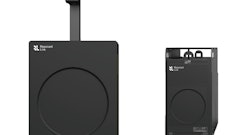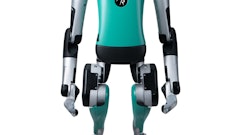The US government will appeal a World Trade Organization (WTO) ruling that Country of Origin Labeling (COOL) breaks trade rules. The ruling came following Canada and Mexico objecting to COOL, which requires that all meat sold retail be labeled as to origination.
US commodity and consumer advocates have argued COOL provides consumers with needed information. Meat processors, meanwhile, have not been in favor of the labeling requirements.
In response to the decision of US Trade Representative Ron Kirk to appeal the WTO ruling, Nation Farmers Union (NFU) president Roger Johnson said: "NFU has been an ardent proponent for COOL from its inception. We will refuse to accept the WTO's recent decision without a vigorous fight and are pleased the USTR has taken the same stance."
An NFU statement released last Friday points out that "NFU delegates recently passed a special order of business regarding COOL at the organization's convention. The order encouraged resolving the dispute while preserving the country-of-origin labeling law. It stated that the USTR must appeal the WTO decision because it is a frontal assault on US sovereignty, the transparency and integrity of our domestic markets, adversely impacts US food consumers by denying them the information they need to make informed buying decisions, denies US farmers and ranchers the opportunity to differentiate their high quality food products in their own US marketplace, and will compound the problems of a negative balance of trade deficit."
Family farmers and ranchers in the United States "work each day to provide a safe, abundant food supply to our country and the world," said Johnson. "Not only are we proud of what we do, but consumers have made it clear they want to know where their food comes from. We should not deny them that right."
The Ranchers-Cattlemen Action Legal Fund, United Stockgrowers of America (R-CALF USA) said is "extremely thankful that (the USTR) has chosen to defend our constitutionally-passed COOL law," said Mike Schultz, region VI director and COOL committee chair. "But, we're in a no-win situation regarding this frontal attack on our COOL law because our nation should not tolerate for an instant a foreign entity's efforts to undermine our constitutionally-passed domestic laws in the first place."
Bill Bullard, R-CALF USA CEO, said that other groups have tried to sugar-coat the WTO's anti-COOL ruling by claiming the ruling reinforced the United States' right to implement a COOL program and only attacked the manner by which the United States' COOL law was implemented. "This is nothing more than semantics and the WTO is far too coy to have attacked our domestic law in any other way than it did. The fact is that the WTO accomplished its objective by ruling on the one hand that COOL was too rigid and treated foreign product less favorably than domestic product, but on the other hand, it ruled that COOL was too flexible and therefore nullified the COOL law's objective."
"The WTO's anti-COOL ruling is nonsensical and baseless and we are confident the United States will prevail in this unenviable appeal," concluded Schultz.
Wenonah Hauter, executive director of Food & Water Watch, said: the USTR action "is good news for consumers and farmers. We are heartened that the Obama administration has finally stood up against the meat industry's attack on common-sense rules that let people get vital information about what they are eating.
"The WTO's November ruling that some provisions of the US law on mandatory country of origin labeling were barriers to trade made it clear once again that the WTO serves global corporate agribusiness interests, not consumers and farmers. Most Americans do not think that an unelected, unaccountable international trade body should get to decide what US consumers can know about their food. Geneva trade bureaucrats have no business meddling in American grocery carts and should not be able to undermine rules put in place by US elected officials.
"The rule for mandatory country of origin labeling (COOL) for meat, fresh and frozen fruits and vegetables, and several kinds of nuts went into effect in 2008, providing American consumers with critical information they need to make informed choices about where their food is from and how it was produced. Since its inclusion in the 2002 farm bill, COOL has had overwhelming support from both consumers and US farmers, despite repeated attempts by the food industry to kill the program and delay its implementation.
"It was clear that appealing this bad WTO decision was the right choice, and it should not have taken the Obama administration until the last possible day to file an appeal. The President and Congress must continue to defend mandatory country of origin labeling from future WTO challenges or any other attempts to take away this crucial labeling program."



























